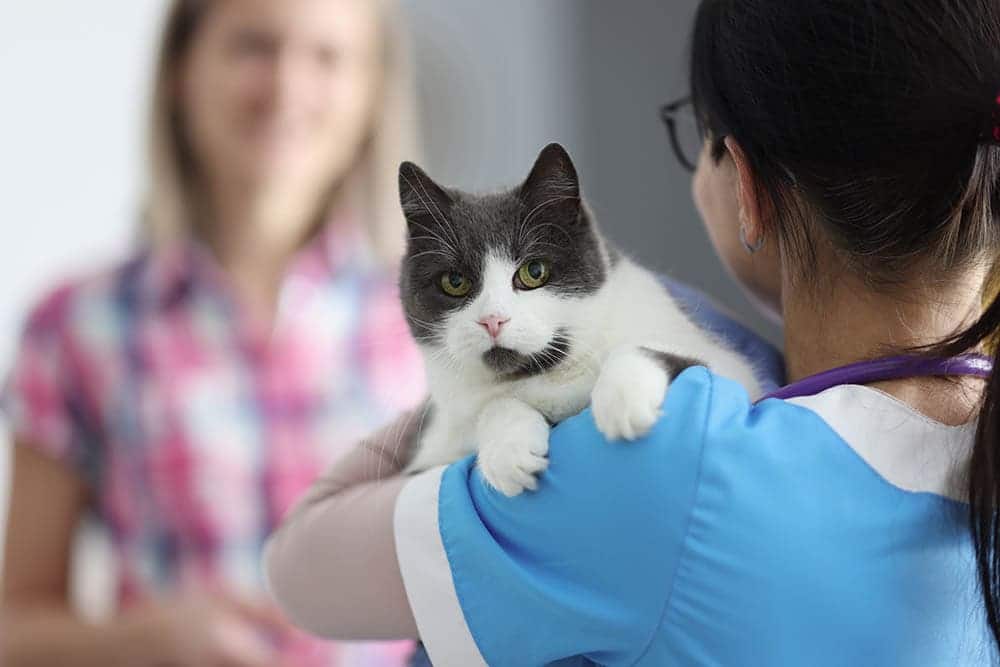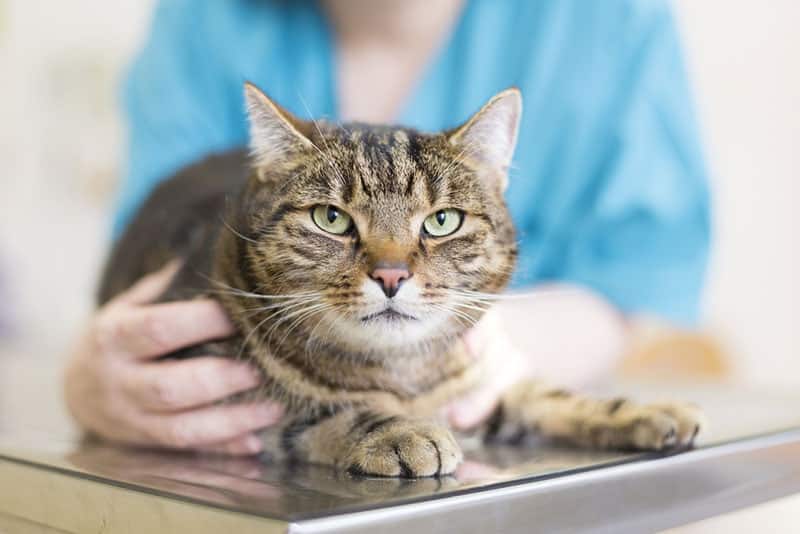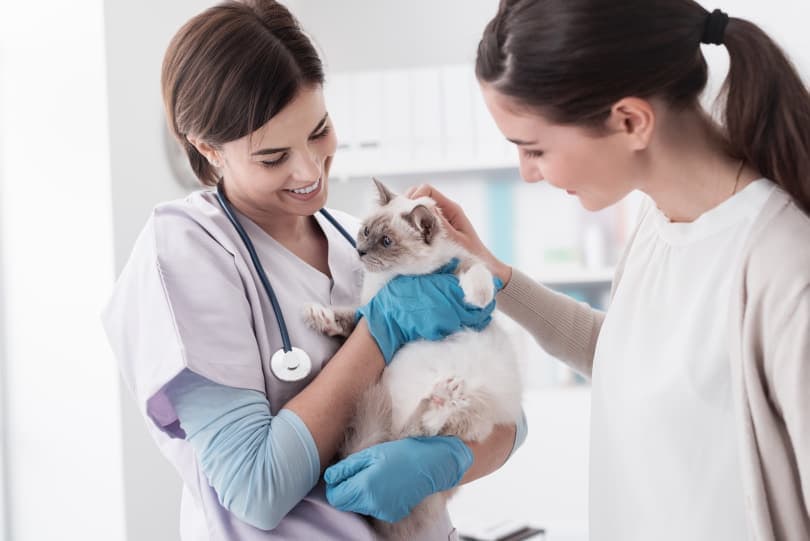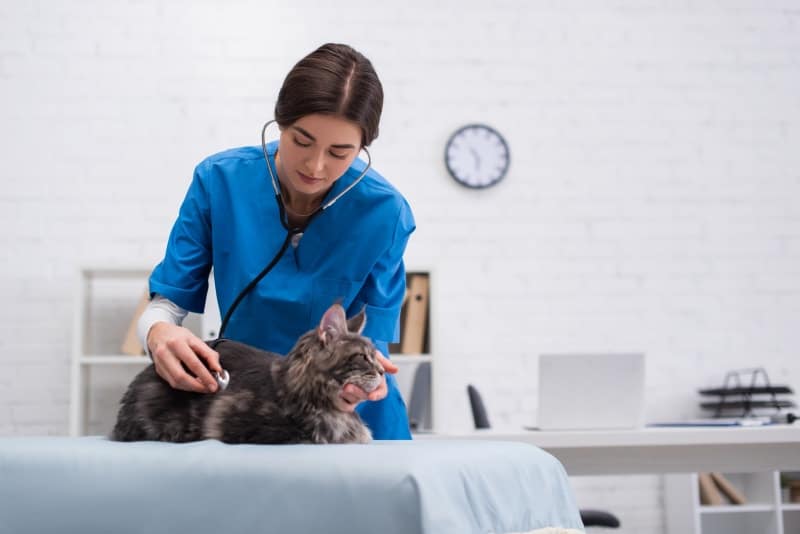Choosing a new veterinarian for your beloved furry friend is a crucial decision that can significantly impact their health and happiness. Whether you’ve recently moved to a new area, adopted a pet, or are seeking a change, finding the right vet requires careful consideration.
If you need help, keep reading for a complete guide to choosing a vet so you can feel comfortable that your pet is getting the care they need.
Before You Get Started
Take the time to assess your pet’s specific needs. Consider factors like age, breed, health conditions, and any special requirements. Write down as much information as you can. Understanding your pet’s unique characteristics will help you narrow your search to veterinarians with expertise in the relevant areas.

The 9 Steps for Finding a New Vet
1. Seek Recommendations From Trusted Sources
Word of mouth is a powerful tool for finding a reliable vet. Contact friends, family, neighbors, and fellow pet owners for recommendations. Ask about their experiences, both positive and negative, to gain valuable insights into local veterinary options. More than half of Americans own a pet, so it shouldn’t be hard to find opinions about your local veterinarians.
2. Research Local Veterinary Clinics
Once you’ve gathered recommendations, conduct thorough research on the veterinary clinics. Explore their websites, read reviews on reputable platforms, and check if they have social media profiles. Look for clinics that prioritize preventive care, have experienced staff, and offer a range of services, from routine check-ups to emergency care.
3. Verify Credentials
Ensure that the veterinarians on your shortlist are licensed and accredited by relevant veterinary boards. This information is typically available on the clinic’s website, or you can obtain it by contacting the veterinary licensing board in your state.

4. Schedule a Visit to the Clinic
Before making a final decision, schedule visits to the clinics that you are considering. These visits will enable you to observe the clinic’s cleanliness, the demeanor of the staff, and the overall atmosphere. Additionally, meet with the veterinarians to discuss your pet’s needs, ask questions, and gauge their level of expertise and communication skills. Most importantly, ensure that they can handle any problems that your pet may have, either currently or in the future.
5. Inquire About Emergency Services
Emergencies can happen at any time, so it’s crucial to choose a vet who provides emergency services or has affiliations with emergency clinics. Inquire about their after-hours policies, the availability of emergency care, and how they handle urgent situations and overnight care.
6. Consider the Clinic’s Location and Hours
Take into account the location and operating hours of the veterinary clinics on your shortlist. Choose a clinic that is conveniently located and has hours that align with your schedule. Accessibility is particularly important during emergencies or unexpected situations.

7. Evaluate Communication and Customer Service
Effective communication is essential for a successful veterinarian-client relationship. Assess how the clinic handles inquiries, appointment scheduling, and follow-up care. A vet clinic with excellent customer service is more likely to provide a positive experience for both you and your pet.
8. Discuss Pricing and Payment Options
Understanding the costs associated with veterinary care is vital. Inquire about pricing for routine services, vaccinations, and potential treatments. Additionally, discuss payment options, including whether the clinic accepts pet insurance, offers payment plans, or has other financial arrangements.
9. Trust Your Instincts
Consider the overall vibe of the clinic, the friendliness of the staff, and your comfort level during visits. If something doesn’t feel right, don’t hesitate to explore other options until you find a vet that aligns with your expectations.

Frequently Asked Questions (FAQ)
What Should I Consider When Visiting a Vet Clinic for the First Time?
During your first visit, pay attention to the clinic’s cleanliness, the attitude of the staff, and the overall atmosphere. Take the opportunity to meet with the vet, discuss your pet’s needs, and ask any questions that you may have about their services and approach to care.
Do I Need a Vet Who Specializes in My Pet’s Specific Breed or Species?
While it’s not always necessary to have a vet with breed-specific expertise, it can be beneficial, especially for certain breeds prone to specific health issues and exotic animals that might have special needs. That said, a general practitioner with experience in various breeds and species can also provide excellent care.
How Can I Assess a Vet’s Expertise in Handling My Pet’s Specific Health Condition?
If your pet has a specific health condition or requires specialized care, ask the vet about their experience in treating similar cases. Some vets will have specialty training in particular areas.
How Does the Vet Handle Anxious or Fearful Pets?
If your pet is anxious or fearful during vet visits, choose a vet who can handle such situations with patience and care. Ask about the vet’s approach to managing these pets and whether they offer strategies or services, such as calming techniques or sedation if necessary.

Summary
While choosing a new vet can be a scary experience, it’s not difficult if you have patience and proceed with a plan. Write down everything that you can about your pet so you have the information handy while talking to the veterinarians. Research local veterinary clinics, and ask your friends and family about which ones they think are good. Then, schedule appointments and speak with each vet about your questions while paying attention to their personality and the way that they operate. Trust your instincts, and go with the one you feel most confident about.
See also:
- Why You Should Have A Cat: 10 Vet-Approved Reasons
- 11 Signs to Look for When Inspecting a Cat Boarding Facility
Featured Image Credit: LightField Studios, Shutterstock
Contents
- Before You Get Started
- The 9 Steps for Finding a New Vet
- 1. Seek Recommendations From Trusted Sources
- 2. Research Local Veterinary Clinics
- 3. Verify Credentials
- 4. Schedule a Visit to the Clinic
- 5. Inquire About Emergency Services
- 6. Consider the Clinic’s Location and Hours
- 7. Evaluate Communication and Customer Service
- 8. Discuss Pricing and Payment Options
- 9. Trust Your Instincts
- Frequently Asked Questions (FAQ)
- What Should I Consider When Visiting a Vet Clinic for the First Time?
- Do I Need a Vet Who Specializes in My Pet’s Specific Breed or Species?
- How Can I Assess a Vet’s Expertise in Handling My Pet’s Specific Health Condition?
- How Does the Vet Handle Anxious or Fearful Pets?
- Summary









